- Home
- George R. R. Martin
Old Mars Page 15
Old Mars Read online
Page 15
Every once in a while, they’d pass a door, one that led to rooms in the thickness of the tower wall. Most were unoccupied. Some—
Phufft.
Teyud fired before the door was fully open. The student toppled backward, a surprised look on his face. One hand held a pancake-tortilla thing wrapped around some filling, the other a top-hinged book. Teyud moved in a blur, getting her pistol arm underneath him before he struck the ground, lowering him gently and leaving the book and the more-or-less burrito on his chest.
Sally covered the stairwell while she worked. Shooting someone here wasn’t really like doing it at home, not if you used anesthetic darts; it was more like paintball, in a way, with the only real risk that of bonking your head when you collapsed. She had played a fair amount of what amounted to paintball with Teyud and her friends now and then. It was fun and excellent training, though she never beat the Coercive. Other Martians yes, but not the Thoughtful Grace, though she came close occasionally.
Of course, out on planet Reality and away from the padded obstacle course you couldn’t tell if someone was using lethals until it was too late. The instant unconsciousness was the same, but with the real thing you had instant brain-death too.
“Here,” Teyud whispered, in a flat, noncarrying tone.
Here was a door with more than its share of faintly glowing footprints. Sally tapped Satemcan on his head, and he sniffed long and carefully, then nodded.
“Ssssamesssstrangesssssmelll,” he whispered.
Teyud went through the eye-capture routine again. Then she looked up and nodded to Sally before she pushed gently on the door.
It swung open, and her optic mask stepped down the brighter light. A voice came through:
“… many years of declining fees and contributions by organizations and the Despot. This is suboptimal in the medium to long term! Contact with the Wet World—”
Which was colloquial Demotic for Earth.
“—presents both unprecedented risks and opportunities for maximizing the utility of the faculty of—”
Under the tiger alertness, some distant part of Sally Yamashita’s mind quietly boggled.
Am I really listening to an evil-mastermind academic veterinarian monologing about cutbacks in his fucking budget? that part of her asked.
The chamber was large and had scattered consoles and lab benches, and what Sally recognized as an isolation tank, a glassine cylinder. Tom Beckworth was in it, naked and glaze-eyed and fastened to a frame with living wormlike bonds. An elderly white-haired Martian was striding up and down in lecture mode, dressed in a dark coverall fitted with dozens of loops to hold instruments, most of them alive.
There were a half dozen younger Martians, probably the equivalent of grad students. She checked a half step at the seventh, a tall, hard-faced man in a gray uniform. He had blond hair cropped to a bristle cut, but his cheekbones were nearly as high as hers and his eyes slanted. One of the grad students was fitting a glassine tube to the side of the isolation chamber and preparing to press a plunger.
Teyud simply walked toward the group. Sally followed, taking deep, slow breaths. Then—
The EastBlocker turned, and his eyes went wide. A hand sped toward the Tokarev at his waist, very fast. Sally leapt—
Pfutt!
The student slumped to the floor before he could press the plunger, and Teyud’s dart pistol was out of action for twenty seconds as the methane chamber recharged.
—and the blond man leapt back, but the tip of her sword scored across his hand and the automatic pistol went flying—
Crack and Teyud’s sword punched through another student’s eye socket and into her brain and out again, as the rest scrambled for their sword belts if they weren’t wearing them. The professor stood glaring with indignation.
Ting, and the EastBlocker had his own blade out, settling into a classic European academic épée stance and beating aside her flèche and riposting with a stop-thrust.
Cling-ting-crash and Teyud was moving through the press of grad students in a whirling blur, with blood misting into the air in arcs as she did. Pfutt, and another dropped bonelessly to the floor. A scream and growl as Satemcan leapt onto the back of one angling to get behind Sally’s back.
Ting-crash-ting, and the point of Sally’s blade slid into the man’s throat, with an ugly sensation of things crunching and popping and yielding.
She froze for a moment, watching him fall slowly to the floor and lie kicking as the astonishing amount of blood a human being contained flowed out.
“Mat’ …” he gasped once: Mother.
“You came a very long way to die,” she murmured, suddenly conscious of a wound along her ribs that she hadn’t even noticed. She swallowed as she felt it; just an inch or two farther in …
The last of the grad students broke and fled for the door. Teyud’s dart pistol came up: Pfutt.
Something crunched as he fell face-first.
Sally wiped her sword on the arm of her robe and sheathed it, throwing back the hood of her robe and keeping her pistol trained on the white-haired professor. She removed her mask and the optic, regretting it as the thing scuttled across the floor and flowed up Teyud’s robe, opening a container and stuffing itself inside. It wasn’t the light, which was adequate; it was the smell. Martians and humans both tended to be very messy when they died.
The robe she was wearing would take care of her wound until she had time to do something more formal. She reached for the ampoule plugged into the side of the isolation chamber.
“Careful!” Tom said.
She looked up; he was gray with either pain or shock or both, but alert.
“Dr. Cagliostro there was about to test that on me, he liked explaining every step. It’s a virus that makes you suggestible. The East-Blockers … or maybe that guy on his own … were paying him to develop it. Then they were going to tell me to forget about it and let you rescue me … so I could spread it.”
“Sounds like them,” Sally said grimly. “There’s a protection?”
“Vaccine,” Beckworth said.
Teyud came back from the door, considering the veterinarian with her head to one side.
“You are elderly and frail,” she said. “Attempting to resist excruciation would be pointless.”
Sally smiled thinly as she worked the controls of the isolation chamber. There were times when she did like the way Martians thought.
Sally Yamashita yawned as she finished her essence, a taste like raspberries and mango with an alcoholic subtang. The glow-globes of her apartment were turned down low; Tom needed all the sleep he could get.
“I am an optimal canid,” Satemcan said sleepily, curling up on his rug.
She yawned again. “Damned straight,” she said. “Best damned dog on Mars.”
MARY ROSENBLUM
One of the most popular and prolific of the new writers of the nineties, Mary Rosenblum made her first sale, to Asimov’s Science Fiction, in 1990, and has since become a mainstay of that magazine and one of its most frequent contributors, with more than thirty sales there to her credit. She has also sold to The Magazine of Fantasy & Science Fiction, The New Space Opera, The Dragon Book, and to many other magazines and anthologies. Her linked series of “Drylands” stories, about an American Southwest rendered uninhabitable by prolonged droughts, proved to be one of Asimov’s most popular series, and now, alas, seems more germane than ever. Her novella “Gas Fish” won the Asimov’s Readers’ Award Poll in 1996, and was a finalist for that year’s Nebula Award. Her first novel, The Drylands, appeared in 1993, winning the prestigious Compton Crook Award for Best First Novel of the year; it was followed in short order by her second novel, Chimera, and her third, The Stone Garden. Her first short story collection, Synthesis & Other Virtual Realities, was widely hailed by critics as one of the best collections of 1996. She has also written four mystery novels under the name Mary Freeman. Her most recent books include a major new science-fiction novel, Horizons, and a reissued an
d expanded version of the Drylands novel and novelettes entitled Water Rites. A graduate of Clarion West, Mary Rosenblum lives in Portland, Oregon.
In the poignant story that follows, we learn that living caught between two worlds can be difficult and painful—especially when you’re the only one who can see one of them.
Shoals
MARY ROSENBLUM
MAARTIN XAI GRABBED HIS COVERALLS FROM THE HOOK BY the door, checked the charge on his breather, and headed down the street to the public lock, the one closest to the garden domes. Outside, the usual afternoon winds swirled, twisting dust devils across the red-and-ochre plain that stretched beyond the dome, bounded by the spires that edged the canal. A half dozen dust devils skittered across the dull green-brown of the cyan fields, raising thin trails of red dust.
That’s where Dad was, off with the other grown-ups, planting more cyan fields where they found enough water, down deep. Making oxygen.
Dad couldn’t see it the way it really was. None of them could. He strolled toward the garden dome until he was out of range of the lock cams, tasting Mars on his tongue, even as breather air filled his lungs. The dust devils changed course and zigzagged toward him and he smiled. Soreh, who ran the weigh room, had been complaining last night as she drank beer with Dad that the dust devils hung around the settlement, that they followed her. Dad had laughed at her.
She was right, but he didn’t tell her. She’d told Dad that he must have gotten brain damage in the blast.
Out of cam range, he hiked away from the low garden domes. Have to stop and check the lines on the way back. Not now. The leading pair of dust devils converged as he reached the edge of the cyan field, their passage a dry scuff in the thin atmosphere. He stopped, braced himself as they twirled around him. Let his eyes go blurry.
He stood on a mosaic plaza, the tiles of shimmering green, ruby, and deep azure laid out in swirling arcs radiating from a cluster of crystal basins. Water leaped in the center of each basin, giving off the tinkle of glass chimes as it splashed back down, overflowing the rim and trickling across the plaza in snaking streams. The two Martians stood in front of him. He smiled at them, recognizing them. He’d named them Rose and Shane because he liked the names. He wasn’t sure that “name” was something that they understood. It wasn’t like they talked in words.
Tall and skinny as the winter trees he’d seen vids of from Earth, they pirouetted, bathing him in their smiles. Well, it felt like a smile. He pirouetted with them, laughing without his mouth because they heard that. Their faces had looked weird at first, with a ridge pushing out down the middle from forehead to chin, so that their elongated, cloudy eyes were set back on either side of the ridge. Their mouths were perfectly round, mostly closed with pale lips, although now and again they opened wide to show darkness and nothing like teeth that he could see. He had no idea what they ate, had never seen a Martian eating.
They fluttered their long, six-fingered hands, and he followed them toward the canal along a long, curving street paved with azure tiles edged with silver so that it flashed in the sunshine, a ghostly image overlaid on red dust and rock. Tall, twisted spires of buildings rose on either side and the tall, slender Martians strolled in and out, crossing the spaces between the buildings on narrow, arching ribbons of crystal, like graceful tightrope walkers he’d seen in vids of old-days circuses. Only, you could see in the circus videos that the tightrope walkers were afraid of falling.
Nobody here was afraid.
Five more Martians had joined them, fluttering their hands as they strolled along the azure path in a ghostly shimmer, their half-length robes fluttering in the breeze, a shifting rainbow of color, like an oil slick on the air. Small thorny plants covered with pink blossoms lined the path here, barely visible in the noonday sun, and the spires were less crowded. Maartin stopped, fascinated, as one of the plants began to rock back and forth. It slowly worked thick rootlets free of the soil. The rootlets, pink and fleshy, flexed like fingers, stretching and elongating, reaching away from the path to bury themselves in the reddish soil. Slowly, the rootlets contracted, pulling the plant away from the neat row along the path.
A Martian hurried up, long fingers of one hand fluttering furiously. The other hand held a slender black wand. The Martian poked the tip of the wand into the soil where the plant had anchored its rootlets. The rootlets whipped out of the soil, coiling tightly under the plant’s thorny branches. It shook its dull green leaves with a threatening rustle and all its thorns slowly aligned to point at the Martian with the wand. The Martian shook its fingers at the plant and poked the wand tip into the soil again. Slowly, the rootlets extended on the far side, and the plant began to drag itself back to the path and the space it had left between its neighbors. Just like the school av’. Maartin covered a smile because moving his mouth made his Martian friends finger-laugh at him. The plant looked defeated, its leaves drooping slightly, its thorns no longer erect.
A finger of urgency prodded him and he looked up. The group of Martians had stopped and were looking back at him. Rose stepped forward. It was her urgency he’d felt. Her. He shrugged as he hurried to catch up. She felt like a her, and he wasn’t sure why, but she did. She looked the same as Shane and he felt like a he.
The canal lay ahead. Towers soared gracefully along its rippling expanse. Barges floated on the water, moving slowly along. When he sneaked out at dusk, the water looked almost solid, but in the sunshine, you could see the empty bed through the barges and the water. Colorful awnings flapped in the breeze, and, in their shade, Martians reclined on footed cushions, their fingers flickering in conversation. A trio stood at the bow of one barge, blowing into polished and twisted horns that branched into multiple mouths. He couldn’t hear anything, but they gave out a soft blue smoke and suddenly he was filled with gentle feelings, sort of like the way he felt at night, when Mom used to tuck in the covers and say good night. He swallowed, and Rose drifted back to walk close to him, floating along on her long toes, as if she was nearly weightless. She waved her fingers in front of him and her head dipped, mouth opening briefly.
Sharing his sorrow. He blinked. They had never paid this much attention to him before. Sometimes they walked with him, but there was no … communication. He felt them some, but they usually didn’t really feel him.
Maybe that was changing.
He closed his eyes, remembering. Mom and her gentle hands, her touch on his face, the way she laughed when Dad looked at her. A tear slid down his face and he wiped it away, Mars dust gritty on his skin, his eyes on the crystal spires, the sparkling water of the canal. Mom would believe him. That he saw … this. The way it really was.
If she was here.
An explosion shattered the quiet, and Maartin flinched as an invisible hand shoved him. The canal, the barges, vanished. On the far side of the canal, where the Rim rose against the pale greenish sky, a burst of red dust fountained upward and a narrow and elegant tower of rock dissolved into a waterfall of pulverized fragments. More clouds of dust billowed outward, and a faint thump followed. Dust devils skittered around him, zigzagging angry patterns across the ground, and he blinked, his eyes tearing as they filled with dust.
Miners. He swallowed. Hard. Felt the swallow turn to stone as it sank into his belly. He blurred his eyes, tried to see the spires again, the barges, through the drifting curtains of dust. He could see them to the left, to the right, way down the canal. Martians stood on the barges, fingers flickering and pointing.
In front of him, only dust, the canal bed empty and dry.
The pile of rubble that had been the rock tower seemed to smoke as dust seeped from it. Machines crawled around the edges, swallowing broken red stone, spewing tails of red dust and rock now. On either side, more columns of rock twined skyward, forming the rim, twisted like the horns of the unicorns he’d seen in the kiddie videos he used to watch. Carved by the wind, Dad said, they all said. The dust devils drifted across the plain toward the dust cloud, zigzagging around the machines. One
of the figures grabbed at his full-face breather as a dust devil snatched at it, and one of the machines bogged down and stopped. More figures hurried to it.
He veered left, to the crumbled edge of the canal, where you could scramble down to the bottom. The sides were mostly still clean and vertical. Only here and there had they crumbled so that it wasn’t a sheer drop to the floor. He slid down, dust a red flag trailing away in the always-wind, stretched his eyes, trying to see water, barges.
“Hey.”
He froze. Looked over his shoulder.
“What the hell are you doing down here?” A short, squat figure, bulky in dull, metallic-colored coveralls, stepped forward to block his path. Maartin had missed him in the morning shadow.
A miner.
He stared into hard gray eyes behind safety goggles, a weathered face with a scraggle of beard sweating beneath a full-mouth breather mask.
“I asked you a question, kid.” A gloved hand clamped down on Maartin’s arm. “You coulda been under that rock when it came down. You wanta die?”
He shook his head, his stomach twisted up in his throat.
“Hey, we warned you folk at the settlement to stay away, didn’t you hear?” The gray eyes softened a bit. “We’re gonna be blowing another outcrop. You’re underneath, you could get dead.”
Dad hadn’t said the miners were coming. He wouldn’t. He struggled to find words.
“Hey, I got a kid brother about your age.” The miner let go of his arm. “I wouldn’t want to see him get hurt, neither.”
“You … killed … Mother.” That burst out, as clear and edged as broken glass. He swung at the man’s face, wanting to hurt him, wanting to …
“Hey, hey, whoa!” The man put his hands up, held him off, ducking the swings. “Cool yer jets, kid. We don’t kill anybody.”
Maartin grabbed at his breather hose, struggled as the man gripped his arms. The words were gone as abruptly as they had come and his tongue knotted, threatening to choke him.

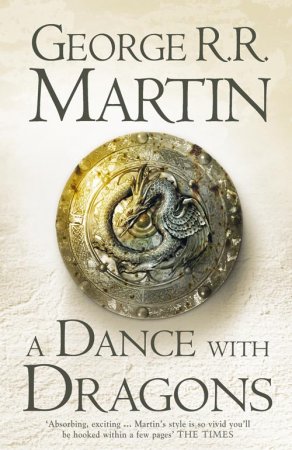 A Dance with Dragons
A Dance with Dragons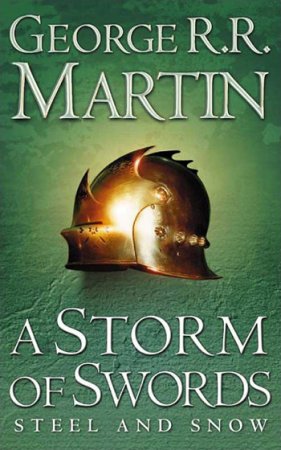 A Storm of Swords
A Storm of Swords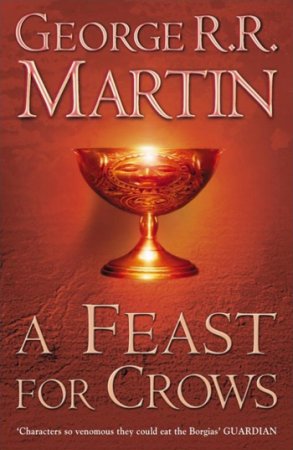 A Feast for Crows
A Feast for Crows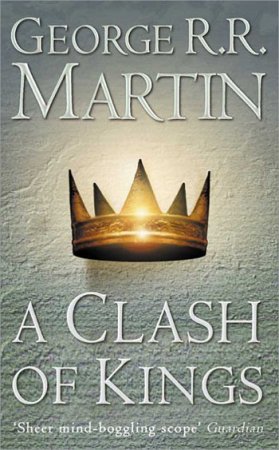 A Clash of Kings
A Clash of Kings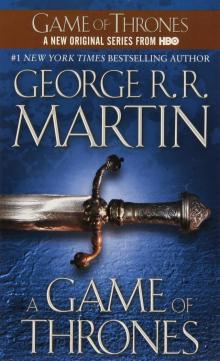 A Game of Thrones
A Game of Thrones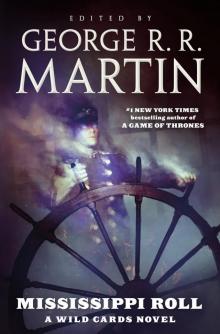 Mississippi Roll
Mississippi Roll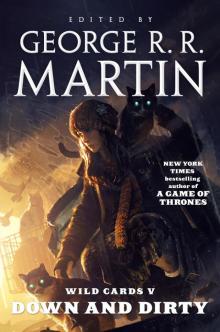 Wild Cards V: Down and Dirty
Wild Cards V: Down and Dirty Busted Flush
Busted Flush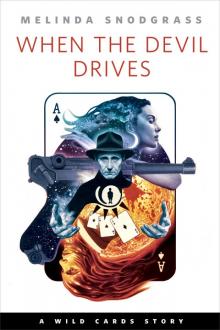 When the Devil Drives
When the Devil Drives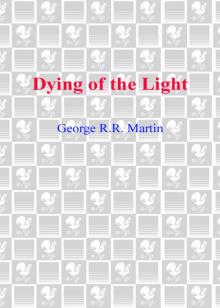 Dying of the Light
Dying of the Light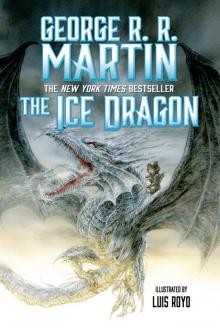 The Ice Dragon
The Ice Dragon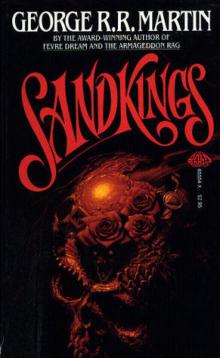 Sandkings
Sandkings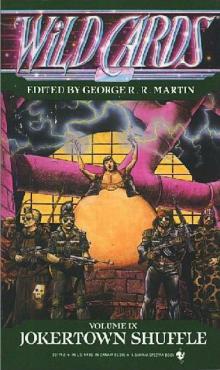 Jokertown Shuffle
Jokertown Shuffle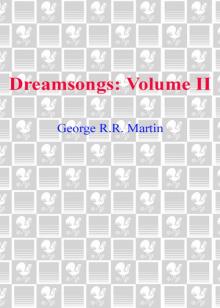 Dreamsongs. Volume II
Dreamsongs. Volume II Deuces Down
Deuces Down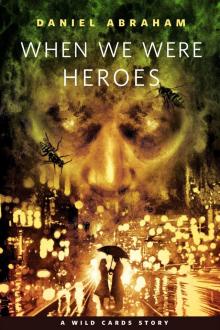 When We Were Heroes
When We Were Heroes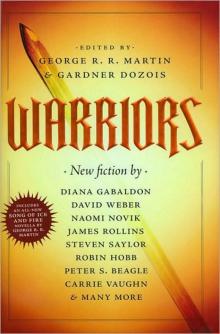 Warriors
Warriors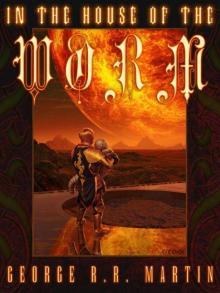 In the House of the Worm
In the House of the Worm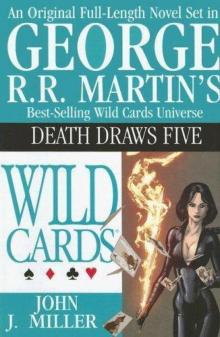 Death Draws Five
Death Draws Five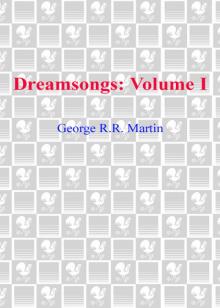 Dreamsongs. Volume I
Dreamsongs. Volume I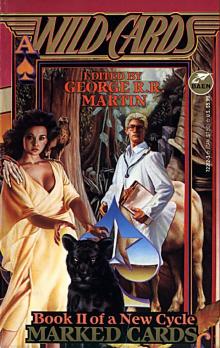 Marked Cards
Marked Cards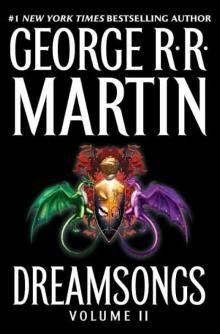 Dreamsongs
Dreamsongs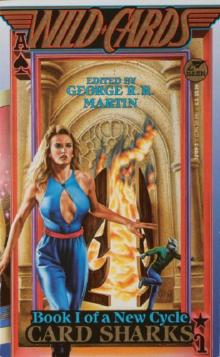 Card Sharks
Card Sharks Dangerous Women
Dangerous Women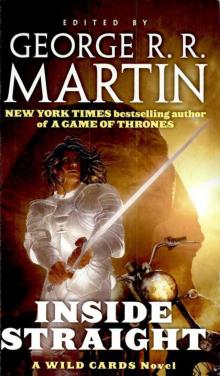 Inside Straight
Inside Straight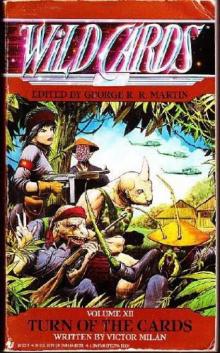 Turn of the Cards
Turn of the Cards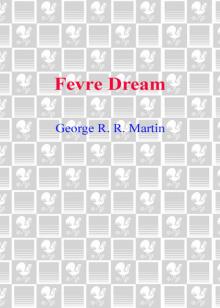 Fevre Dream
Fevre Dream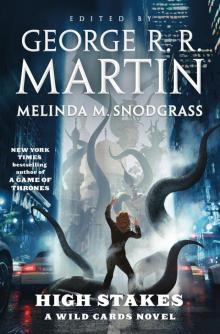 High Stakes: A Wild Cards Novel
High Stakes: A Wild Cards Novel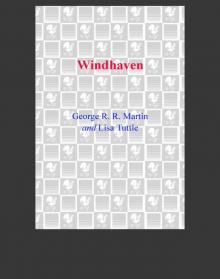 Windhaven
Windhaven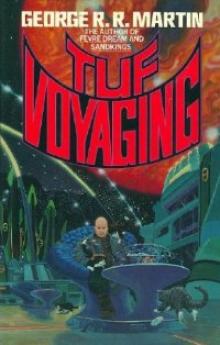 Tuf Voyaging
Tuf Voyaging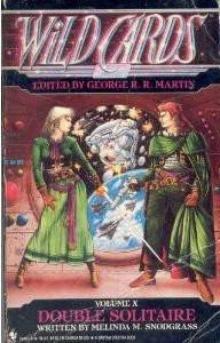 Double Solitaire
Double Solitaire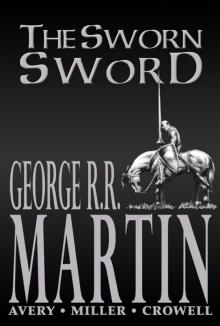 The Sworn Sword
The Sworn Sword Low Chicago
Low Chicago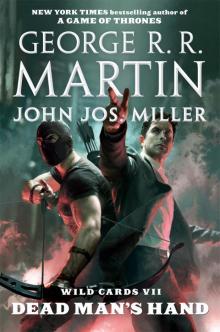 Dead Man's Hand
Dead Man's Hand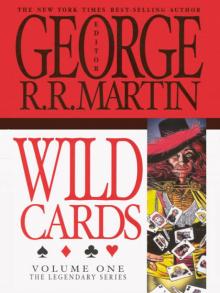 Wild Cards
Wild Cards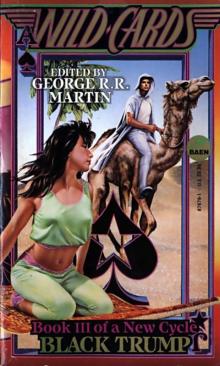 Black Trump
Black Trump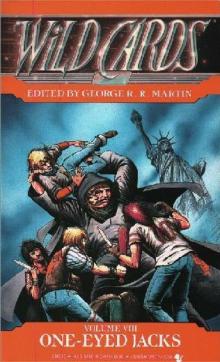 One Eyed Jacks
One Eyed Jacks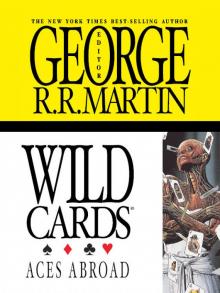 Wild Cards: Aces Abroad
Wild Cards: Aces Abroad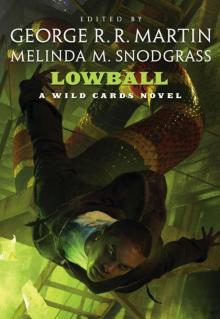 Lowball: A Wild Cards Novel
Lowball: A Wild Cards Novel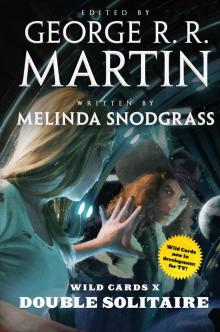 Double Solitaire (2019 Edition)
Double Solitaire (2019 Edition)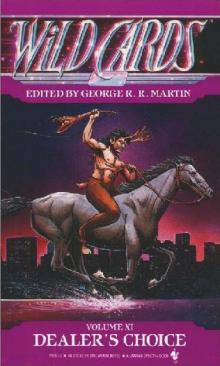 Dealer's Choice
Dealer's Choice Ace in the Hole
Ace in the Hole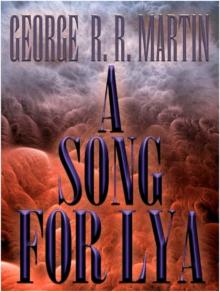 A Song for Lya: And Other Stories
A Song for Lya: And Other Stories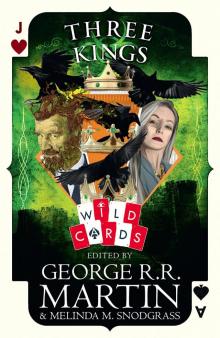 Three Kings
Three Kings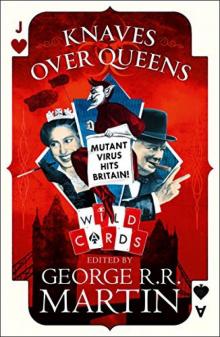 Knaves Over Queens
Knaves Over Queens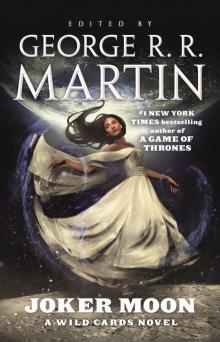 Joker Moon
Joker Moon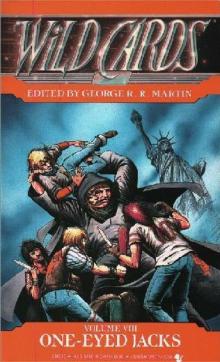 One Eyed Jacks wc-8
One Eyed Jacks wc-8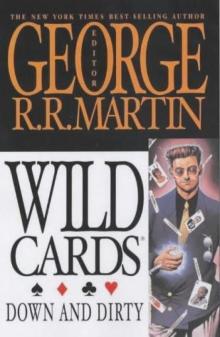 Down And Dirty wc-5
Down And Dirty wc-5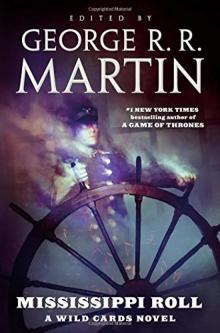 Mississippi Roll_A Wild Cards Novel
Mississippi Roll_A Wild Cards Novel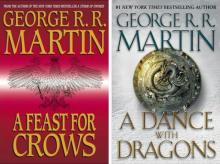 A Feast for Dragons
A Feast for Dragons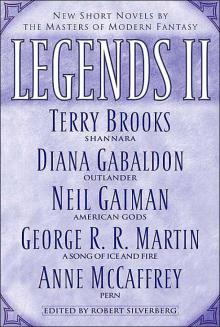 The Sworn Sword ttodae-2
The Sworn Sword ttodae-2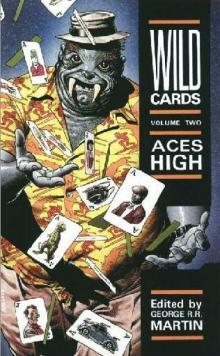 Aces High wc-2
Aces High wc-2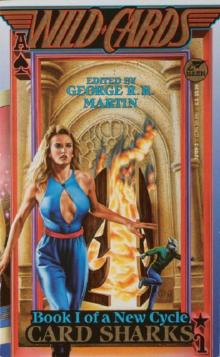 Wild Cards 13 : Card Sharks
Wild Cards 13 : Card Sharks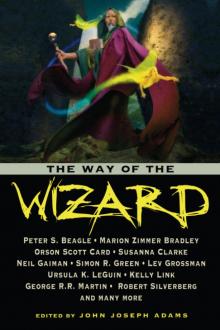 Way of the Wizard
Way of the Wizard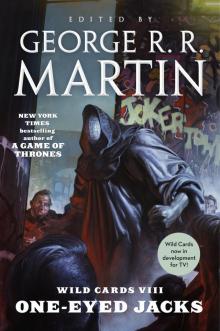 Wild Cards VIII: One-Eyed Jacks
Wild Cards VIII: One-Eyed Jacks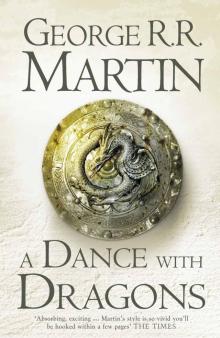 A Dance With Dragons: Book 5 of A Song of Ice and Fire (Song of Ice & Fire 5)
A Dance With Dragons: Book 5 of A Song of Ice and Fire (Song of Ice & Fire 5)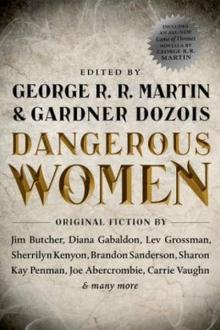 The Princess and The Queen, Or, The Blacks and The Greens (a song of ice and fire)
The Princess and The Queen, Or, The Blacks and The Greens (a song of ice and fire)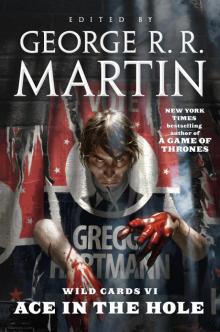 Wild Cards VI--Ace in the Hole
Wild Cards VI--Ace in the Hole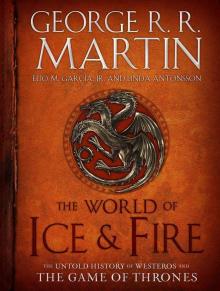 The World of Ice & Fire: The Untold History of Westeros and the Game of Thrones (A Song of Ice and Fire)
The World of Ice & Fire: The Untold History of Westeros and the Game of Thrones (A Song of Ice and Fire)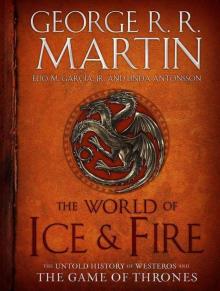 The World of Ice & Fire: The Untold History of Westeros and the Game of Thrones
The World of Ice & Fire: The Untold History of Westeros and the Game of Thrones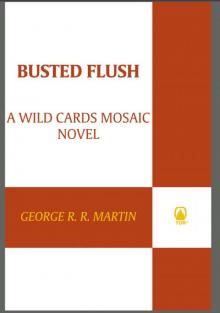 Busted Flush wc-19
Busted Flush wc-19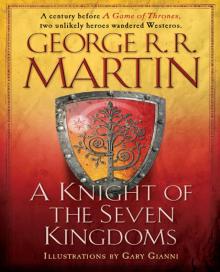 A Knight of the Seven Kingdoms
A Knight of the Seven Kingdoms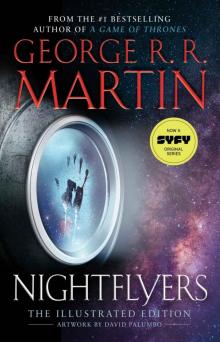 Nightflyers: The Illustrated Edition
Nightflyers: The Illustrated Edition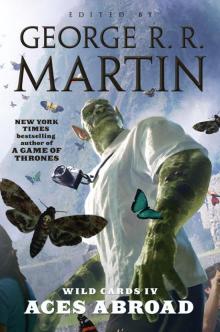 Wild Cards IV
Wild Cards IV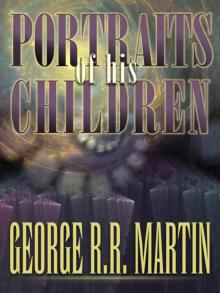 Portraits of His Children
Portraits of His Children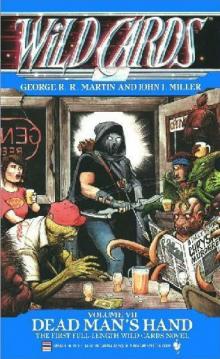 Dead Mans Hand wc-7
Dead Mans Hand wc-7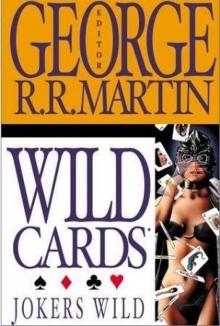 Jokers Wild wc-3
Jokers Wild wc-3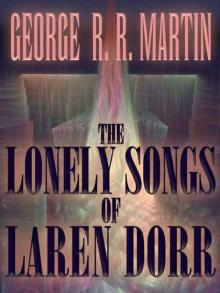 The Lonely Songs of Laren Dorr
The Lonely Songs of Laren Dorr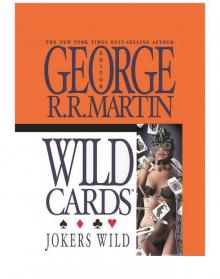 Wild Cards III: Jokers Wild
Wild Cards III: Jokers Wild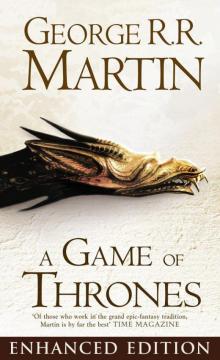 A Game of Thrones Enhanced Edition
A Game of Thrones Enhanced Edition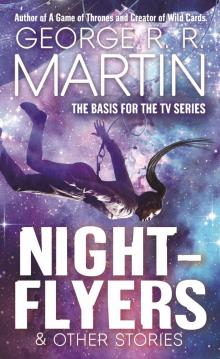 Nightflyers & Other Stories
Nightflyers & Other Stories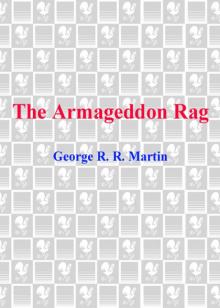 Armageddon Rag
Armageddon Rag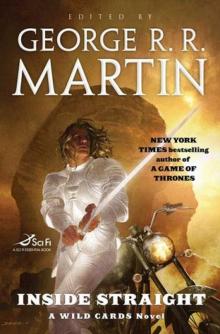 Wild Cards: Inside Straight
Wild Cards: Inside Straight A Song for Lya
A Song for Lya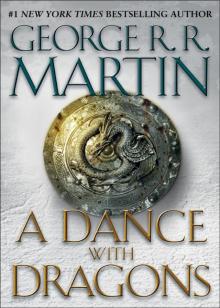 A Dance with Dragons: A Song of Ice and Fire: Book Five
A Dance with Dragons: A Song of Ice and Fire: Book Five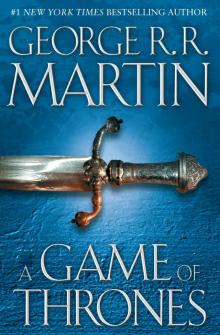 Song of Fire & Ice 01 - A Game of Thrones
Song of Fire & Ice 01 - A Game of Thrones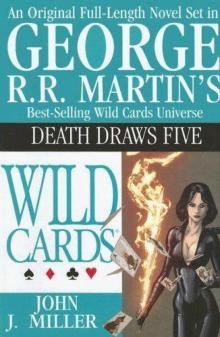 Death Draws Five wc-17
Death Draws Five wc-17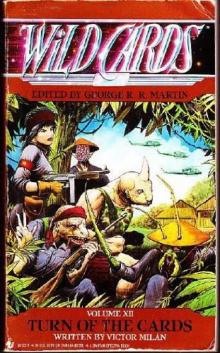 Turn of the Cards w-12
Turn of the Cards w-12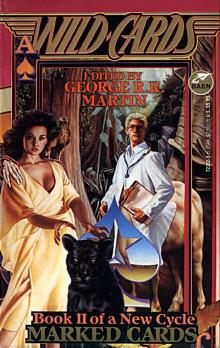 Wild Cards 14 - Marked Cards
Wild Cards 14 - Marked Cards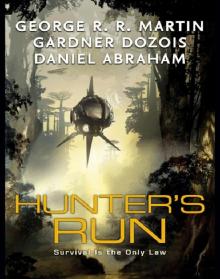 Hunter's Run
Hunter's Run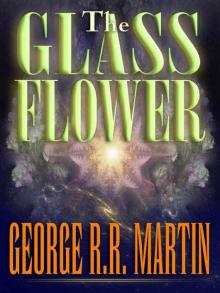 The Glass Flower
The Glass Flower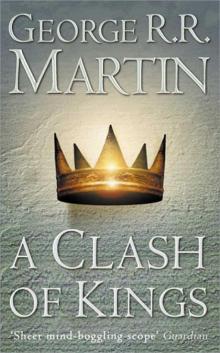 A Clash of Kings asoiaf-2
A Clash of Kings asoiaf-2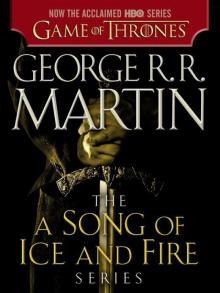 A Game of Thrones 5-Book Bundle: A Song of Ice and Fire Series: A Game of Thrones, A Clash of Kings, A Storm of Swords, A Feast for Crows, and A Dance with Dragons (Song of Ice & Fire)
A Game of Thrones 5-Book Bundle: A Song of Ice and Fire Series: A Game of Thrones, A Clash of Kings, A Storm of Swords, A Feast for Crows, and A Dance with Dragons (Song of Ice & Fire)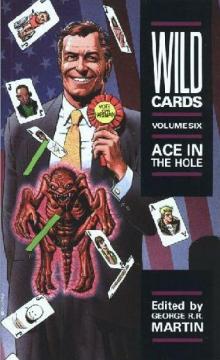 Ace In The Hole wc-6
Ace In The Hole wc-6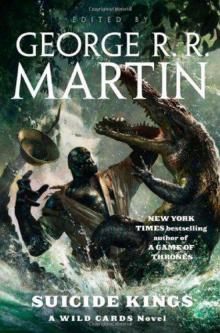 Suicide Kings wc-20
Suicide Kings wc-20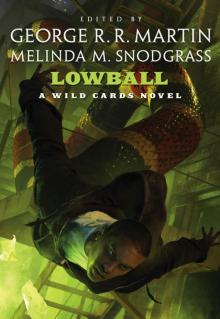 Lowball
Lowball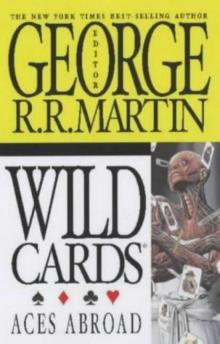 Aces Abroad wc-4
Aces Abroad wc-4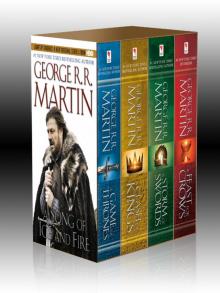 George R. R. Martin's a Game of Thrones 4-Book Bundle
George R. R. Martin's a Game of Thrones 4-Book Bundle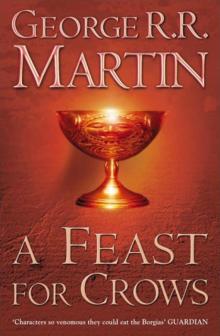 A Feast for Crows asoiaf-4
A Feast for Crows asoiaf-4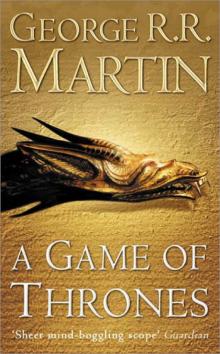 A Game of Thrones asoiaf-1
A Game of Thrones asoiaf-1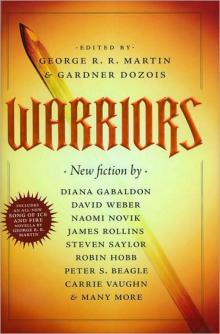 The Mystery Knight ttodae-3
The Mystery Knight ttodae-3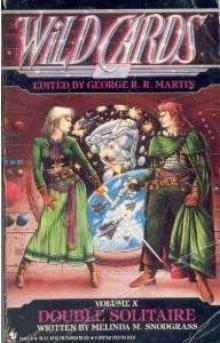 Double Solitaire w-10
Double Solitaire w-10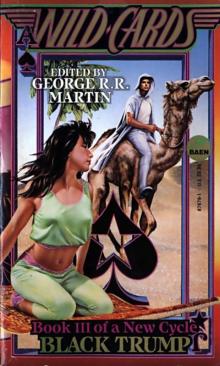 Wild Cards 15 - Black Trump
Wild Cards 15 - Black Trump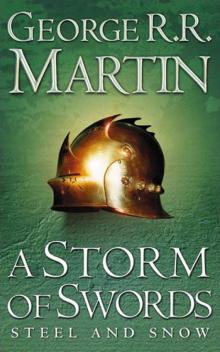 A Storm of Swords asoiaf-3
A Storm of Swords asoiaf-3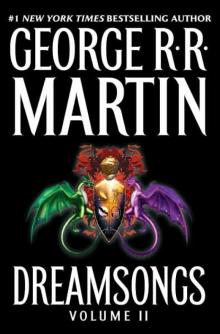 The Hedge Knight ttodae-1
The Hedge Knight ttodae-1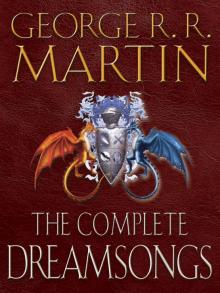 Dreamsongs 2-Book Bundle
Dreamsongs 2-Book Bundle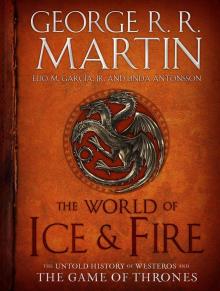 The World of Ice & Fire
The World of Ice & Fire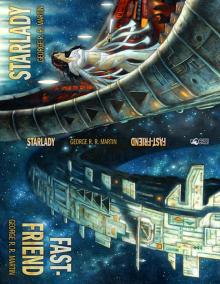 Starlady & Fast-Friend
Starlady & Fast-Friend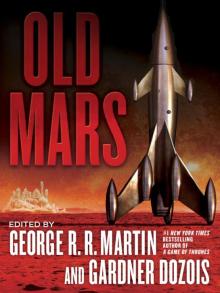 Old Mars
Old Mars Fantasy For Good: A Charitable Anthology
Fantasy For Good: A Charitable Anthology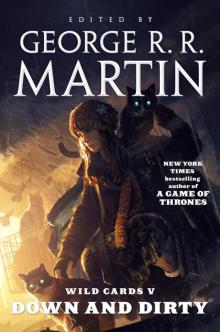 Wild Cards V
Wild Cards V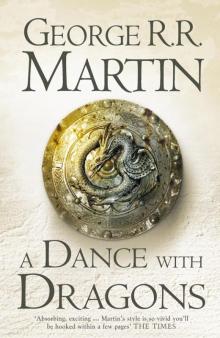 A Dance with Dragons asoiaf-5
A Dance with Dragons asoiaf-5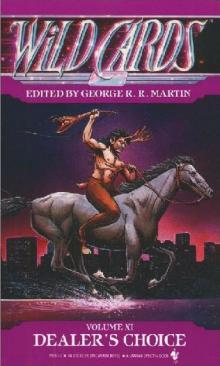 Dealer's Choice w-11
Dealer's Choice w-11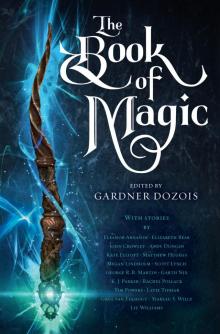 The Book of Magic
The Book of Magic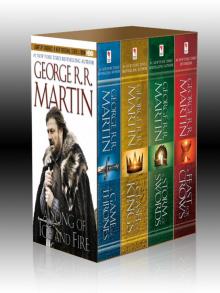 A Game of Thrones 4-Book Bundle
A Game of Thrones 4-Book Bundle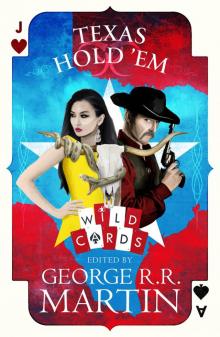 Texas Hold 'Em
Texas Hold 'Em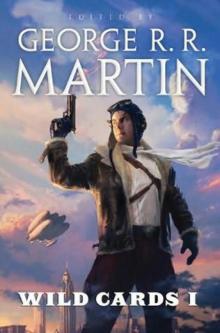 Wildcards wc-1
Wildcards wc-1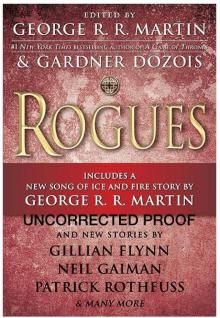 Rogues
Rogues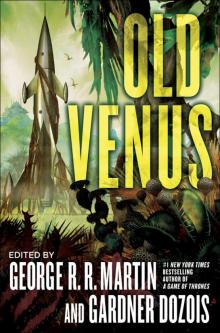 Old Venus
Old Venus